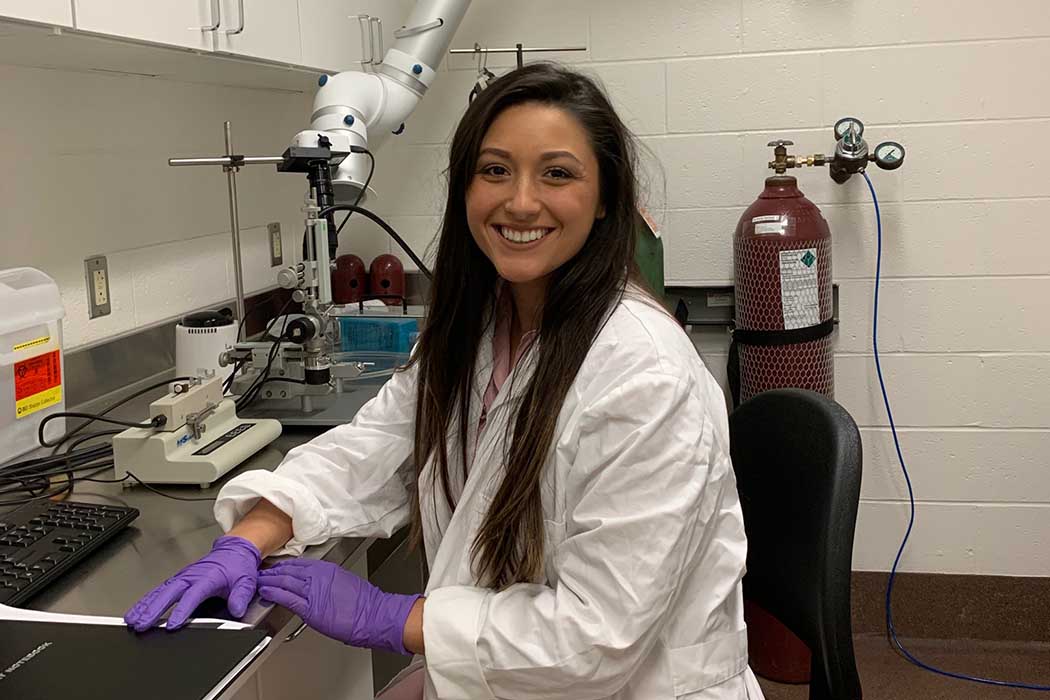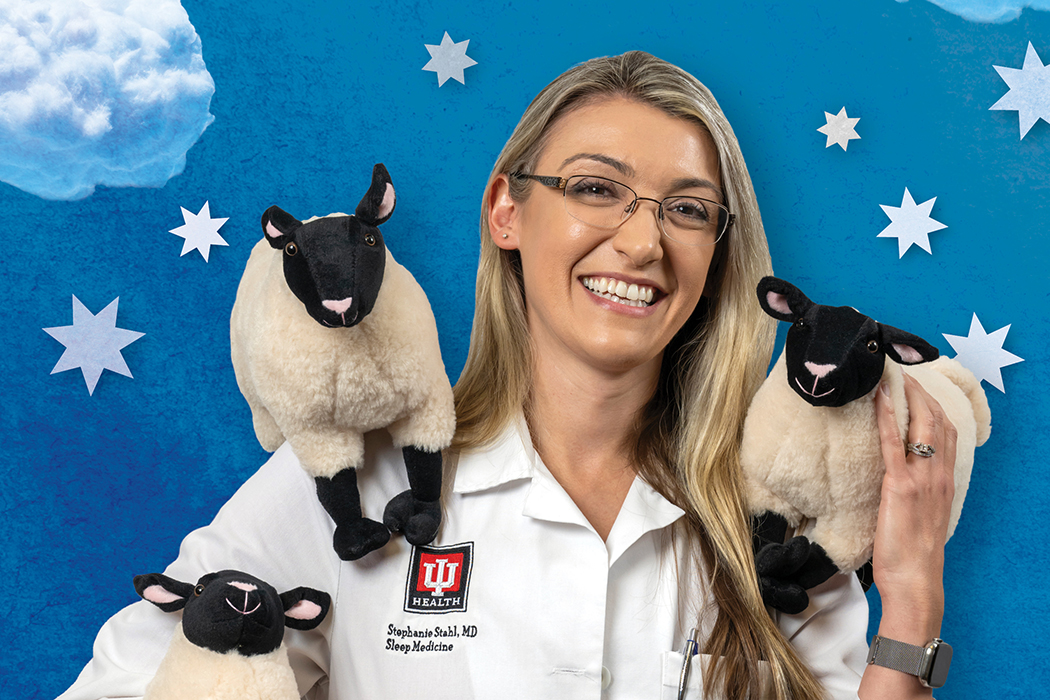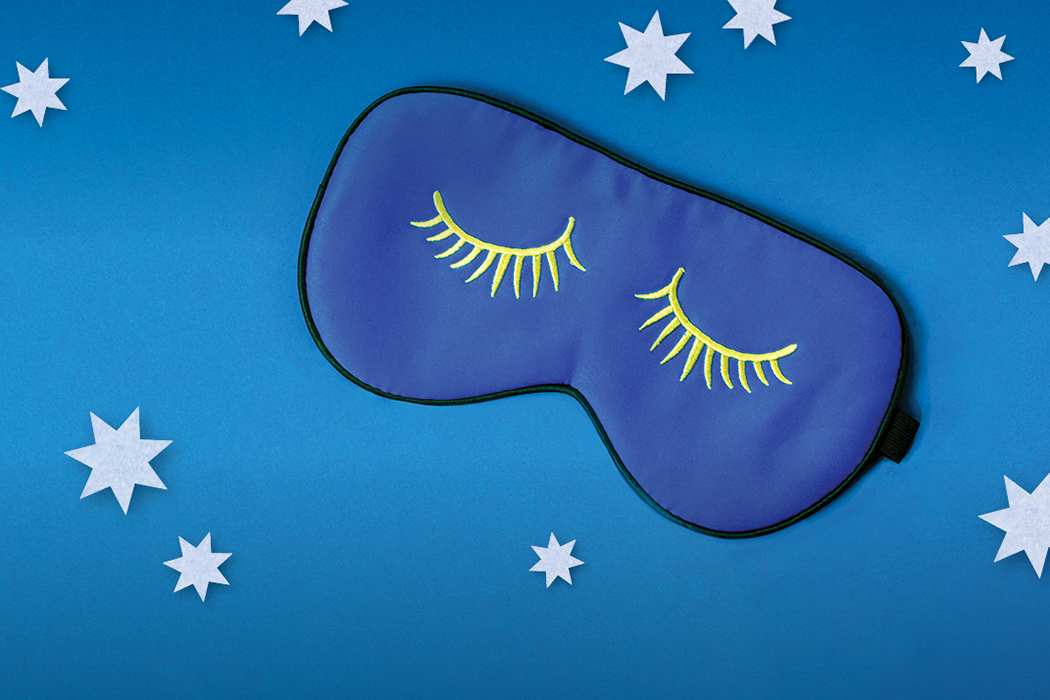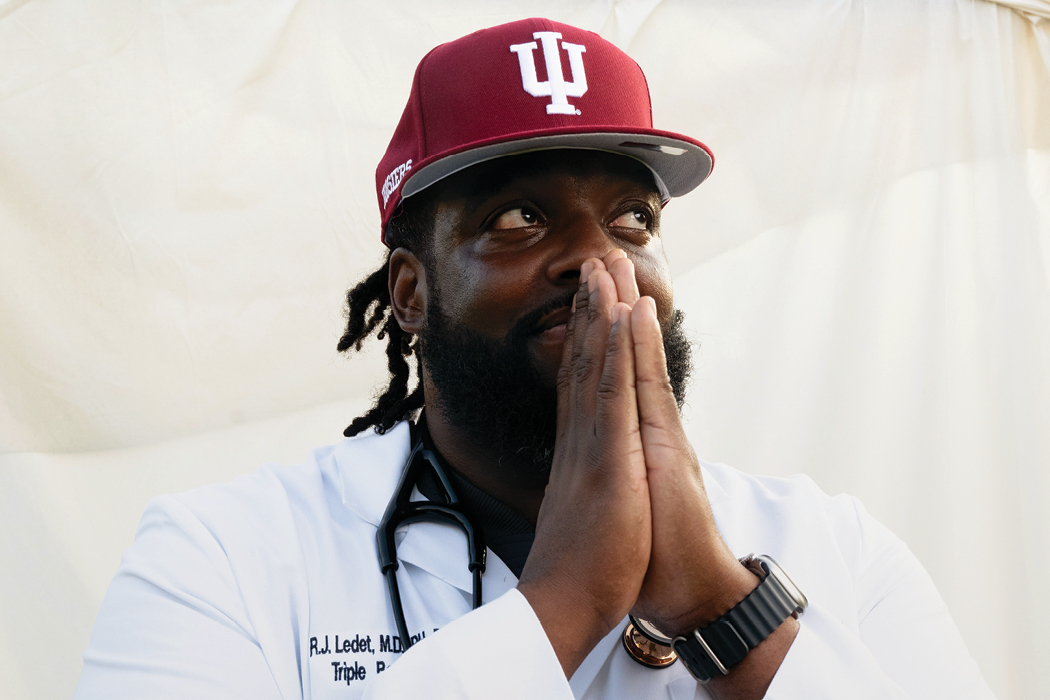For IU senior, tackling the opioid crisis is personal

Indiana University senior Carmen Zavala spent her summer trying to save lives.
As a student research assistant in the Hohmann Lab at IU, Zavala investigated possible solutions to reducing harmful opioid side effects, like respiratory depression. Instead of working a summer job to make ends meet, Zavala was able to devote herself to research full time, thanks to funding from IU’s Advanced Summer Research Scholarship.
Reducing the harm caused by opioids is a passion for Zavala because, like so many Americans, she has been personally affected by it.
“Addiction doesn’t discriminate”
Zavala’s mom was in pain for a long time due to a chronic illness. Eventually, she was prescribed opioids.
When Zavala was a senior in high school, her mother lost her job and, subsequently, her health insurance and access to her chronic pain specialist. The pills she’d used to manage pain could be purchased on the street, but they were too expensive. Heroin was the affordable alternative.

In April 2017, during the spring of Zavala’s freshman year at IU, her mom revealed that she was addicted to heroin and would be seeking treatment.
“My mom had the office job. She was the funny mom, the mom who went to football games. She sat in the rain just to watch me cheer,” Zavala says. “Addiction doesn’t discriminate.”
After completing treatment, Zavala’s mom was feeling hopeful. But then she relapsed. In June 2017, Zavala got a call from police. Her mother had died from an opioid overdose.
“I didn’t need anyone to tell me what happened,” Zavala says. “I knew what had happened, but I didn’t want to believe it.”
Responding to the crisis
More than 70,000 people in the United States were killed by a drug overdose in 2017—47,000 of those by opioids. Every 2.5 hours, someone in Indiana is sent to the hospital for an opioid overdose.
In response, IU launched its Responding to the Addictions Crisis initiative in the fall of 2017. The announcement came just a few months after Zavala’s mom passed away. To her, it felt like a sign.
“I had this feeling in my gut, like I need to be part of this. This is so important,” says Zavala. “I’ve personally experienced this, and I want to be part of what IU is doing.”
Zavala started as an administrative assistant. One of her duties was reviewing all the research proposals that came in.

“It was amazing to see how many people were wanting to help solve this crisis, and that so many of them were part of my university,” Zavala says.
“I really felt like I was at home at that point . . . like I chose the right university. I felt like IU was doing something for me—people like me.”
“I’m a researcher now”
During her junior year at IU, Zavala read a proposal from an IU team working to create a non-addictive pain treatment, led by principal investigator Andrea Hohmann. In February 2019, Zavala landed her first research position working on that very proposal.
“Right after that, I was like: ‘Yep, this is for me,’” Zavala says. She switched her major from biology to neuroscience that spring and applied for the Advanced Summer Research Scholarship.

As a Hudson and Holland Scholar, Zavala receives financial support during the academic year, but it doesn’t carry over into the summer. Her research scholarship helped her pay for essentials like rent, utilities, and groceries.
“I wouldn’t have been able to research this summer had I not gotten the scholarship,” she says. “I have gained so much experience because of this. I feel like I’m a researcher now.”
The work continues
Zavala will continue working in the Hohmann Lab during her senior year at IU. She also volunteers at a center in Bloomington for people recovering from addiction, and she’s studying for the Medical College Admission Test with the hopes of going to medical school when she graduates from IU in 2020.
Maybe she’ll become a neurosurgeon. Maybe she’ll work as a psychiatrist, or with children whose parents are struggling with addiction. Zavala feels like there are so many opportunities, so many ways that she might channel her experiences and skills into a profession that helps people.
“My mom’s death was a very big eye-opener,” Zavala says. “For some reason, she didn’t get a second chance, so I am making her death into something—I’m advocating for those who are in the same situation.”
We invite you to make a gift to the Engaged Learning Fund to support engaged learning opportunities at IU, including research scholarships like the one Carmen Zavala received.
Tags from the story
Written By
Andrea Alumbaugh
A native Hoosier, Andrea Alumbaugh is a graduate of IU (BAJ’08) and a senior writer at the IU Foundation.




